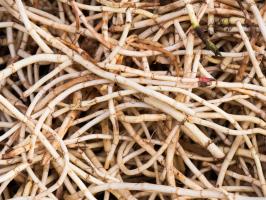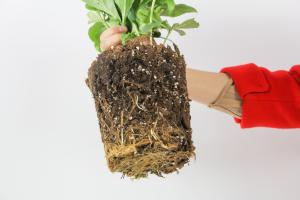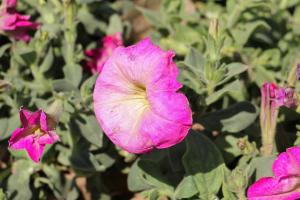Introduction
Pot plants, also known as potted plants, are plants that are grown in containers rather than in the ground. In order to thrive, these plants require certain nutrients that are essential for their growth and development. In this article, we will discuss what kind of nutrients pot plants need to grow healthy and strong.
Macronutrients
Pot plants require three main types of macronutrients: nitrogen, phosphorus, and potassium. These elements are essential for the plant’s growth and development, and they are required in large quantities. Nitrogen is responsible for the green leaves and stems of the plant, while phosphorus is necessary for the plant’s root development and healthy blooming. Potassium, on the other hand, helps the plant to become more resistant to diseases and to develop strong, thick stems.
Micronutrients
In addition to macronutrients, pot plants also require a number of micronutrients that are necessary in smaller quantities. These include elements such as iron, calcium, magnesium, and sulfur, as well as trace elements like copper, zinc, and boron. These micronutrients are essential for various plant functions such as the production of chlorophyll, cell division, and the regulation of water balance within the plant.
Organic Matter
Organic matter is another essential nutrient for pot plants. It is derived from decomposed plant or animal material and is important for building healthy soil. Organic matter provides nutrients to the plant, improves soil structure, and promotes the growth of beneficial microorganisms. Examples of organic matter include compost, manure, and leaf mold.
Water
Water is another essential nutrient for pot plants. It is required for various plant functions such as photosynthesis, nutrient uptake, and transpiration. Water should be applied in moderation, as overwatering can lead to root rot and other plant diseases. It is important to ensure that the soil is well-draining, as stagnant water can suffocate the roots and ultimately kill the plant.
Fertilizers
Fertilizers are a common way to provide pot plants with the nutrients they need. They come in a variety of forms including liquid, granular, and slow-release fertilizer. It is important to choose a fertilizer that is appropriate for the type of plant being grown and to follow the manufacturer’s instructions for application. Over-fertilizing can lead to nutrient burn, a condition where the roots are damaged by excess nutrients.
Conclusion
In conclusion, pot plants require a range of nutrients to grow healthy and strong. These include macronutrients such as nitrogen, phosphorus, and potassium, as well as micronutrients like iron and calcium. Organic matter and water are also essential for the plant’s growth and development. By providing the right balance of nutrients and proper care, pot plants can thrive and provide beauty and greenery to any indoor or outdoor space.

 how many times do yo...
how many times do yo... how many planted tre...
how many planted tre... how many pine trees ...
how many pine trees ... how many pecan trees...
how many pecan trees... how many plants comp...
how many plants comp... how many plants can ...
how many plants can ... how many plants and ...
how many plants and ... how many pepper plan...
how many pepper plan...

































